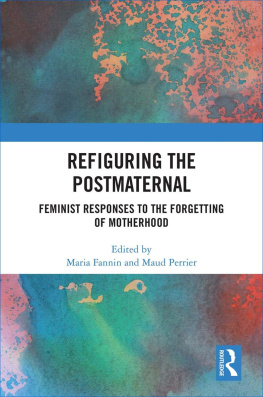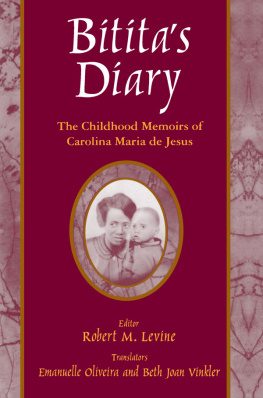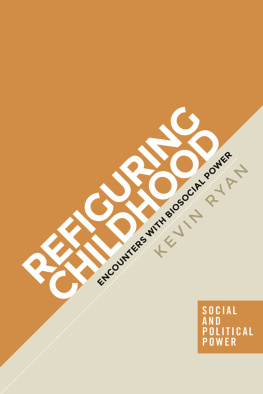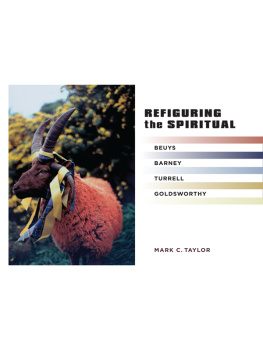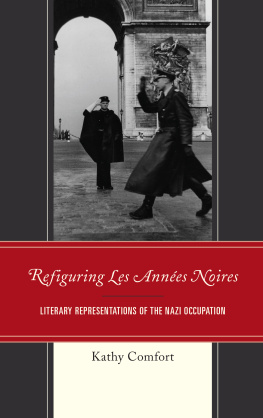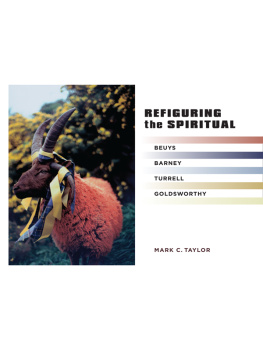Refiguring the Postmaternal
This book explores the concept of the postmaternal as a response to changing cultural, political and economic conditions for motherhood and responds to Julie Stephens contention that gender-neutral feminism has led to a forgetting of the maternal within feminist memory. In Confronting Postmaternal Thinking: Feminism, Memory, Care (2011) Stephens identifies a significant cultural anxiety about caregiving, nurturing and human dependency that she calls postmaternal thinking. She argues that maternal forms of care have been rejected in the public sphere and marginalised to the private domain through an elaborate process of cultural forgetting, in turn contributing to the current dominance of a degendered form of feminism.
This book argues that refiguring postmaternalism requires opening up the maternal beyond the category of mothers and the nuclear family. The chapters in this edited volume contribute to the field of maternal studies by investigating the connections between maternalism, feminism and neoliberalism through diverse feminist theories, cases and methodologies. We challenge Stephens diagnosis of the forgetting of certain forms of maternal practices from feminisms history by highlighting the ongoing contested place of the maternal in feminist scholarship and activism for the last five decades. We argue that the memorialising of the maternal in feminist scholarship needs to reflect its diverse legacies in the analyses of black feminism, socialist feminism and ecofeminism in order to destabilise the association of the maternal with neoliberalism and the depoliticisation of feminism. This book was originally published as a special issue of Australian Feminist Studies.
Maria Fannin is Reader in Human Geography in the School of Geographical Sciences at the University of Bristol, UK. Her research focusses on the social and economic dimensions of health, medicine and technology, particularly in relation to reproduction and womens health. She is currently researching the multiple forms of value attached to human placental tissue in the biosciences, medicine and alternative health practices. Her work has appeared in Body & Society, Feminist Theory and New Genetics & Society.
Maud Perrier is Senior Lecturer in Sociology at the University of Bristol, UK. She has written about class and contemporary motherhood and the relationship between neoliberalism, work, care and feminisms. She is currently researching women food social entrepreneurs in Sydney, Australia, with Elaine Swan. She has published in Sociology, Sociological Review, Sociological Research Online, Continuum: Journal of Media and Cultural Studies, Humanities, Gender and Education and Feminist Formations.
Refiguring the Postmaternal
Feminist Responses to the Forgetting of Motherhood
Edited by
Maria Fannin and Maud Perrier
First published 2018
by Routledge
2 Park Square, Milton Park, Abingdon, Oxon, OX14 4RN, UK
and by Routledge
711 Third Avenue, New York, NY 10017, USA
Routledge is an imprint of the Taylor & Francis Group, an informa business
2018 Taylor & Francis
All rights reserved. No part of this book may be reprinted or reproduced or utilised in any form or by any electronic, mechanical, or other means, now known or hereafter invented, including photocopying and recording, or in any information storage or retrieval system, without permission in writing from the publishers.
Trademark notice: Product or corporate names may be trademarks or registered trademarks, and are used only for identification and explanation without intent to infringe.
British Library Cataloguing in Publication Data
A catalogue record for this book is available from the British Library
ISBN13: 978-0-8153-9205-7
Typeset in Myriad Pro
by codeMantra
Publishers Note
The publisher accepts responsibility for any inconsistencies that may have arisen during the conversion of this book from journal articles to book chapters, namely the possible inclusion of journal terminology.
Disclaimer
Every effort has been made to contact copyright holders for their permission to reprint material in this book. The publishers would be grateful to hear from any copyright holder who is not here acknowledged and will undertake to rectify any errors or omissions in future editions of this book.
Contents
Maria Fannin and Maud Perrier
Lisa Baraitser
Patricia Hamilton
Junko Yamashita
Maud Perrier and Maria Fannin
Mary Phillips
Alison Bartlett
Julie Stephens
The chapters in this book were originally published in Australian Feminist Studies, volume 31, issue 90 (December 2016). When citing this material, please use the original page numbering for each article, as follows:
Introduction
Refiguring the Postmaternal
Maria Fannin and Maud Perrier
Australian Feminist Studies, volume 31, issue 90 (December 2016) pp. 383392
Chapter 1
Postmaternal, Postwork and the Maternal Death Drive
Lisa Baraitser
Australian Feminist Studies, volume 31, issue 90 (December 2016) pp. 393409
Chapter 2
The Good Attached Mother: An Analysis of Postmaternal and Postracial Thinking in Birth and Breastfeeding Policy in Neoliberal Britain
Patricia Hamilton
Australian Feminist Studies, volume 31, issue 90 (December 2016) pp. 410431
Chapter 3
A Vision for Postmaternalism: Institutionalising Fathers Engagement with Care
Junko Yamashita
Australian Feminist Studies, volume 31, issue 90 (December 2016) pp. 432447
Chapter 4
Belly Casts and Placenta Pills: Refiguring Postmaternal Entrepreneurialism
Maud Perrier and Maria Fannin
Australian Feminist Studies, volume 31, issue 90 (December 2016) pp. 448467
Chapter 5
Embodied Care and Planet Earth: Ecofeminism, Maternalism and Postmaternalism
Mary Phillips
Australian Feminist Studies, volume 31, issue 90 (December 2016) pp. 468485
Chapter 6
Postmaternal Times and Radical Feminist Thinking
Alison Bartlett
Australian Feminist Studies, volume 31, issue 90 (December 2016) pp. 486500
Chapter 7
Shape-shifting Around the Maternal: A Response
Julie Stephens
Australian Feminist Studies, volume 31, issue 90 (December 2016) pp. 501512
For any permission-related enquiries please visit: http://www.tandfonline.com/page/help/permissions
Lisa Baraitser is a Reader in Psychosocial Studies at Birkbeck, University of London, UK. She has published widely on motherhood and feminist and psychoanalytic theory, and runs the research network MaMSIE (Mapping Maternal Subjectivities, Identities and Ethics). Her recent work is on the relations between temporality, gender and care.


